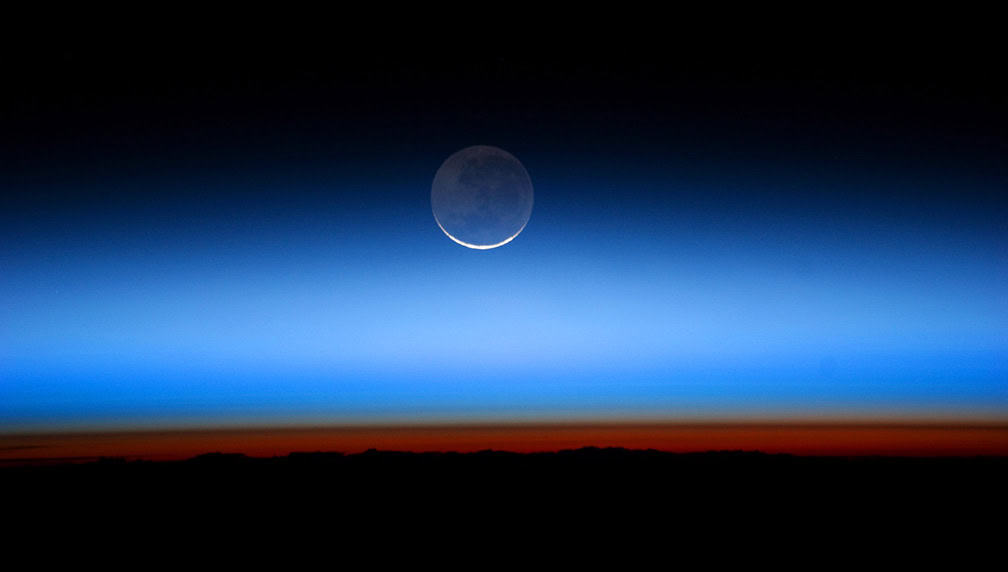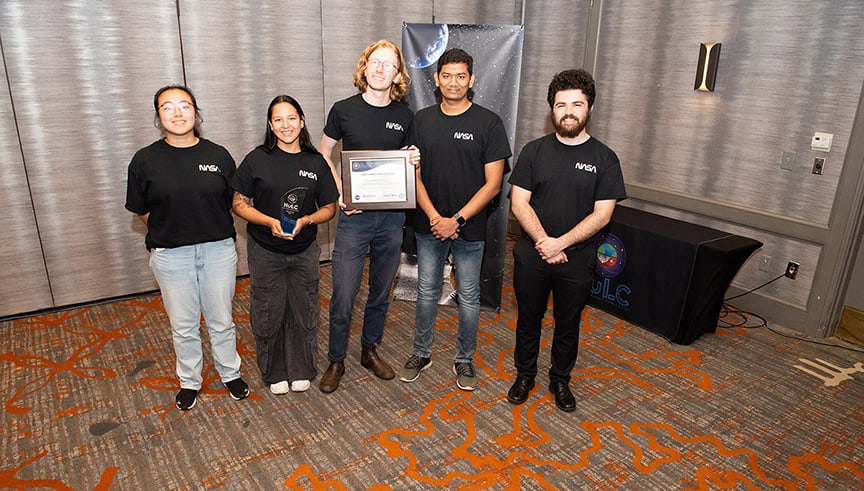
NASA Announces Winners of Inaugural Human Lander Challenge
NASA announced the winner of the inaugural Human Lander Challenge, a challenge designed to provide solutions for landing humans on the moon.

NASA announced the winner of the inaugural Human Lander Challenge, a challenge designed to provide solutions for landing humans on the moon.
On June 27, 2024, NASA announced the University of Michigan team to be the winner of the inaugural Human Lander Challenge, a challenge designed to provide solutions for landing humans on the moon.
NASA’s 2024 Human Lander Challenge (HuLC) Forum brought 12 university teams from across the United States to Huntsville, Alabama, near the agency’s Marshall Space Flight Center, to showcase their innovative concepts for addressing the complex issue of managing lunar dust. The 12 finalists, selected in March 2024, presented their final presentations to a panel of NASA and industry experts from NASA’s Human Landing Systems Program at the HuLC Forum in Huntsville June 25-27.

NASA’s lunar exploration campaign Artemis is working to send the first woman, first person of color, and first international partner astronaut to the Moon and establish long-term lunar science and exploration capabilities. Dust mitigation during landing is one of the key challenges NASA and its Artemis partners will have to address in exploring the lunar South Pole region and establishing a long-term human presence on the Moon. Participants in the 2024 Human Lander Challenge developed proposed systems-level solutions that could be potentially implemented within the next 3-5 years to manage or prevent clouds of dust – called lunar plume surface interaction – that form as a spacecraft touches down on the Moon.
NASA announced the University of Michigan team, with their project titled, “ARC-LIGHT: Algorithm for Robust Characterization of Lunar Surface Imaging for Ground Hazards and Trajectory” as the selected overall winner and recipient of a $10,000 award. The team included U-M students Alexander Cushen (Team Lead), Ariana Bueno, Jaykumar Adalja, Corrydon Wettstein, Mengxiang Shi, Samuel Carrico, Yuliana Garcia, and Naila Garcia, with Faculty Advisors Professor Chris Ruf and Professor Mirko Gamba.
“This project has been an amazing opportunity to work on technology that helps enable lunar science and exploration, which is a subject that’s always fascinated me,” said Alexander Cushen, a Ph.D. student at the U-M Department of Climate and Space Sciences and Engineering who served as the student team lead. “Working with my team and our advisors to develop a physical experiment to test our concept has also been very rewarding, and been a great compliment to my Ph.D. research objectives. I am really proud of everyone’s achievements in the competition, and hope we can continue to develop our concept in the future with the funds and support made available through HuLC!”
More information about the HuLC Forum can be found on this website: https://hulc.nianet.org/